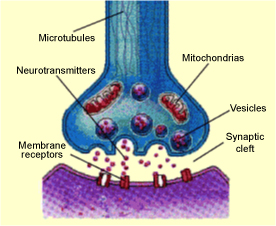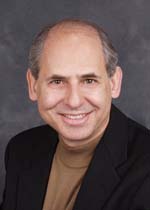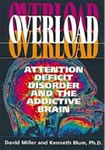Entries Tagged as 'Drug Abuse'
September 30th, 2010 · No Comments
In a recently published study in the journal Addiction, researchers from Bowling Green State University report evidence of an association between a father being in jail and elevated risks for illegal drug use in teens.
The researchers are careful to note, however, that this is a non-experimental study, and that the relationships observed are associations, and should not be taken to indicate a causal process. “Further research is needed to more fully examine if it is father’s incarceration, or other closely related factors such as father’s criminality, family histories of drug use, or stresses associated with family instability, that are driving these detrimental relationships”.
Given that having a father in prison is an increasingly common event, this study’s findings suggest that a substantial number of young people in the USA are at risk for drug use. Increased drug use is closely linked to a number of adverse outcomes, including illegal drug market activity, increased crime and incarceration rates, lost work productivity, and costly substance abuse treatment.
[Read more →]
Tags: Drug Abuse
A recent study conducted by Donald Light, a professor of comparative health policy at the University of Medicine and Dentistry of New Jersey, found about 85 percent of new drugs offer few, if any, new benefits.
The research titled, “Pharmaceuticals: A Two-Tier Market for Producing ‘Lemons’ and Serious Harm,” is an institutional analysis of the drug industry and how it works based on a range of independent sources and studies. The research paper was presented at the 105th Annual Meeting of the American Sociological Association.
In one study of 111 final applications for drug approval, Light said 42 percent lacked adequately randomized trials, 40 percent had flawed testing of doses, 39 percent lacked evidence of clinical efficacy, and 49 percent raised concerns about adverse drug side effects.
“Sometimes, drug companies hide or downplay information about serious side effects of new drugs and overstate the drugs’ benefits,” Light was quoted as saying. “Then, they spend two- to three-times more on marketing than research to persuade doctors to prescribe these new drugs. Doctors may get misleading information and then misinform patients about the risks of a new drug. It’s really a two-tier market for lemons.”
[Read more →]
Tags: Drug Abuse
Published online in July in the Journal of Psychiatric Research, the study “Childhood and Adolescent-onset Psychiatric Disorders, Substance Use, and Failure to Graduate High School on Time” found that 29 percent of students who used tobacco failed to complete high school on time. Twenty percent of teens who used alcohol and 24.6 percent of teens who used drugs dropped out.
Existing literature suggests that poor educational performance contributes to smoking. If this is true, then breaking the connection between smoking and education may be essential to further reduction in the prevalence of smoking.
The study also stated that 32.3 percent of students with the combined type of ADHD — which incorporates hyperactive and inattentive symptoms — drop out of high school. Fifteen percent of teens with no psychiatric disorder drop out.
“Understanding the factors that contribute to dropping out of high school has major public-health implications, given that a third of youth in this country do not complete high school on time. Supporting mental-health interventions for students may have a significant impact on reducing high school dropout,” said study author Elizabeth Miller, an assistant professor of pediatrics and an adolescent medicine specialist at UC Davis Children’s Hospital.
[Read more →]
Tags: Drug Abuse
 I watched the first two episodes of the VH1 show, Celebrity Rehab 3 (Thursdays at 10pm), that advertises that it will follow Mackenzie Phillips, Heidi Fleiss, Dennis Rodman, Mindy McCready, Lisa D’Amato, Mike Starr, Kari Ann Peniche, Joey Kovar, and Tom Sizemore (Tom has not showed up yet) in an intensive 21-day drug rehab program.
I watched the first two episodes of the VH1 show, Celebrity Rehab 3 (Thursdays at 10pm), that advertises that it will follow Mackenzie Phillips, Heidi Fleiss, Dennis Rodman, Mindy McCready, Lisa D’Amato, Mike Starr, Kari Ann Peniche, Joey Kovar, and Tom Sizemore (Tom has not showed up yet) in an intensive 21-day drug rehab program.
This program is being supervised by Dr. Drew Pinsky, Medical Director of the Department of Chemical Dependency Services at Southern California’s Las Encinas Hospital.
The show takes place inside one of Southern California’s private addiction and recovery treatment facilities, the Pasadena Recovery Center. The center states that they believe in addressing mind, body, and spirituality in the treatment of addiction and offer several different “holistic treatments” which include yoga, meditation, acupuncture and fitness. (At least these 4 activities are a start to providing a complete program for true healing and recovery).
Celebrity Rehab Drug Program Failure
It was heart wrenching to watch the celebrities going through detox in episode two. Maybe it was good for some people to see it as a deterrent, but this is one of the areas where the rehab program completely fails! And this is where almost all conventional treatment programs fail. They are not treating and healing the brain first and using other holistic methods for quick recovery.
One of the first things they should be doing is using an IV to get the nutrients into the body as quickly as possible to detox and heal the brain neurotransmitters. This procedure also greatly reduces withdrawal symptoms and helps reduce relapses.
It is very unfortunate that Dr. Drew and the Pasadena Recovery Center is still using old outdated methods that have a high failure rate. The public should know that there are alternatives that are very successful.
[Read more →]
Tags: Drug Abuse
 It’s been only about a quarter of a century since we discovered that, contrary to what we’d thought for decades prior to that time, the brain actually sends signals from one neuron to another by means of chemical molecules, called neurotransmitters. That discovery has enabled us to put together the pieces of the puzzle of addiction in a way that we simply hadn’t been able to do before we knew about these amazing chemical messengers.
It’s been only about a quarter of a century since we discovered that, contrary to what we’d thought for decades prior to that time, the brain actually sends signals from one neuron to another by means of chemical molecules, called neurotransmitters. That discovery has enabled us to put together the pieces of the puzzle of addiction in a way that we simply hadn’t been able to do before we knew about these amazing chemical messengers.
Brain Neurotransmitters
Once we’d begun to understand how brain neurotransmitters work, we also began to understand how they control our moods, memory, thinking, and behavior. Each of our brain cells is a tiny but very powerful manufacturing plant that assembles these chemical molecules out of nutrients and passes them along to other neurons. When our brains have enough of the nutrients necessary to manufacture all of the neurotransmitters we need, we’re able to feel relaxed and alert, focused and free of fear, happy and pain-free. In short, when our brains have the nutrients they need to create neurotransmitters in the necessary quantities, we’re most fully alive, engaged, and productive.
Neurotransmitters and Addiction
When we’re unable to produce these chemical messengers in the necessary quantities, our moods, intellectual capability and behavior tend to deteriorate. We’re often unable to focus, we tend to worry about things that we probably shouldn’t be concerned with, we’re not “up” and alert and happy, and we have difficulty coping with pain, whether the pain is physical or emotional.
If neurotransmitter deficiencies persist over time, we’re often led to use prescription drugs, alcohol, so-called “street drugs”, and other substances, including nicotine, to substitute for our transmitter shortages. These drugs are capable of temporarily alleviating the symptoms of neurotransmitter deficiencies, but continued use of these substances can, often quite quickly, result in addiction, a situation in which our brains adapt and begin to rely on these transmitter substitutes to keep us going.
[Read more →]
Tags: Drugs and Brain Disorders
 Researchers at Weill Cornell Medical College in New York have been studying the ways that teens are influenced by their peers and parents when it comes to smoking, drinking and using marijuana in a combined manner. The results show that teenagers attitudes toward smoking are influencing them in the use of multiple types of drugs whether it be drinking, smoking or using marijuana.
Researchers at Weill Cornell Medical College in New York have been studying the ways that teens are influenced by their peers and parents when it comes to smoking, drinking and using marijuana in a combined manner. The results show that teenagers attitudes toward smoking are influencing them in the use of multiple types of drugs whether it be drinking, smoking or using marijuana.
The results also show that it affects girls differently than boys. With girls, the emphasis stems from their friends and the permissive attitudes that exist within their social groups.
On the other hand, for boys, the drug use is predicted by how they perceived smoking to be socially prevalent in larger age groups and not just among their friends. If smoking is socially acceptable and widely practiced, then teenagers are much more like to participate in smoking, drinking and possibly use marijuana.
[Read more →]
Tags: Drug Abuse
Anyone who has a drug addiction should be tested for toxic and heavy metals as they are probably the most dangerous because of their potential to cause long-term and potentially irreversible brain injury.
The most common elements to test for are lead, mercury, and aluminum (also cadmium for smokers).
Do you have mercury tooth fillings? If yes, then have them removed.
Do you still have aluminum cookware? If so, throw it out!
[Read more →]
Tags: Drugs and Brain Disorders
 Daniel G. Amen, MD, is a psychiatrist, brain imaging specialist, the CEO and medical director of Amen Clinics, Inc. and best selling author.
Daniel G. Amen, MD, is a psychiatrist, brain imaging specialist, the CEO and medical director of Amen Clinics, Inc. and best selling author.
In a recent article on the Psychology Today web site, he answered 7 questions. Two of them were this:
3. What mistakes do therapists make that hinder the therapeutic process?
The biggest mistake I see is that they rarely consider the brain. I often say psychiatrists are the only medical specialists that never look at the organ they treat. How crazy is that!
How do we know unless we look?
We call people who have brain damage personality disordered? We call people with toxic exposure resistant to treatment? We think of depression as a singular illness, when it has many types, like chest pain. We need to do much better and it will start when we really take brain function seriously.
4. In your opinion, what is the ultimate goal of therapy?
Better brain function. I am convinced therapy goes much faster, and patients are better able to do their own lives when you help your patients have better brain function.
The other questions and answers are here:
Unchain Your Brain
Our son had Click Here! and also used drugs. We took him for evaluation and a brain scan at an Amen Clinic. It was informative.
But I would suggest before people have a brain scan, they should have extensive lab tests that check for food allergies, heavy metal toxicities, essential fatty acid deficiencies, amino acid deficiencies, vitamin & mineral imbalances, etc. Then get the proper nutrients into the body that are necessary to balance the brain and body.
[Read more →]
Tags: Drugs and Brain Disorders
 A counselor and a scientist collaborated on a book – “Overload” – to show that there is a vital connection between attention deficit disorder and addiction.
A counselor and a scientist collaborated on a book – “Overload” – to show that there is a vital connection between attention deficit disorder and addiction.
David Miller, a counselor, had struggled with his own ADHD and alcoholism.
Kenneth Blum, PhD, a renowned neuroscientist credited with the co-discovery (with Dr. Ernest Noble of UCLA and former director of The National Institute on Alcoholism and Alcohol Abuse (NIAAA)) of the first genetic association of the dopamine D2 receptor gene with severe alcoholism.
Some of the findings I learned include:
* Significantly more children with attention deficit hyperactivity disorder (ADHD) develop problems with alcoholism or drug addiction than do children without ADHD.
* The D2 receptor gene is associated with a variety of impulsive, compulsive, addictive behaviors, including the use of crack cocaine, smoking, and attention deficit hyperactivity disorder. Dr. Blum gave a name to this complex condition – reward deficiency syndrome (RDS). This relates to the deficiency in the reward part of the brain where dopamine works.
[Read more →]
Tags: Drugs and Brain Disorders
 Daniel Amen, MD is a physician, psychiatrist, author and a pioneer in brain imaging.
Daniel Amen, MD is a physician, psychiatrist, author and a pioneer in brain imaging.
In his recent newsletter, he states that January is the busiest month in mental health treatment nationwide. For many, the holidays bring a lot of unpleasant memories, unrealized expectations and stress. It is easy to get into the comfort zone of overeating, isolating and abusing alcohol and drugs.
Unfortunately, the temporary relief provided by indulging wears off fast and leaves you feeling worse. And, the damage you do to your brain sets the stage for repeated failure.
As to brain scans, Dr Amen discovered that a healthy scan shows full, even, symmetrical activity. Drug and alcohol abuse tended to cause overall decreased activity in the brain. These brains looked more aged, more shriveled, and more toxic than the brains of people who did not use drugs.
Heroin and heroin-like drugs, called opiates, caused severe decreased activity, as did much alcohol. Methamphetamines and cocaine tended to cause what looked like multiple holes or mini-strokes in the brain. Marijuana caused decreased activity in the frontal and temporal lobe areas (areas involved with memory and motivation).
One of the most powerful lessons learned from imaging is that many people who abuse substances are really trying to change their own brain chemistry (self medication).
[Read more →]
Tags: Drugs and Brain Disorders
 I watched the first two episodes of the VH1 show, Celebrity Rehab 3 (Thursdays at 10pm), that advertises that it will follow Mackenzie Phillips, Heidi Fleiss, Dennis Rodman, Mindy McCready, Lisa D’Amato, Mike Starr, Kari Ann Peniche, Joey Kovar, and Tom Sizemore (Tom has not showed up yet) in an intensive 21-day drug rehab program.
I watched the first two episodes of the VH1 show, Celebrity Rehab 3 (Thursdays at 10pm), that advertises that it will follow Mackenzie Phillips, Heidi Fleiss, Dennis Rodman, Mindy McCready, Lisa D’Amato, Mike Starr, Kari Ann Peniche, Joey Kovar, and Tom Sizemore (Tom has not showed up yet) in an intensive 21-day drug rehab program.  It’s been only about a quarter of a century since we discovered that, contrary to what we’d thought for decades prior to that time, the brain actually sends signals from one neuron to another by means of chemical molecules, called neurotransmitters. That discovery has enabled us to put together the pieces of the puzzle of addiction in a way that we simply hadn’t been able to do before we knew about these amazing chemical messengers.
It’s been only about a quarter of a century since we discovered that, contrary to what we’d thought for decades prior to that time, the brain actually sends signals from one neuron to another by means of chemical molecules, called neurotransmitters. That discovery has enabled us to put together the pieces of the puzzle of addiction in a way that we simply hadn’t been able to do before we knew about these amazing chemical messengers. Researchers at Weill Cornell Medical College in New York have been studying the ways that teens are influenced by their peers and parents when it comes to smoking, drinking and using marijuana in a combined manner. The results show that teenagers attitudes toward smoking are influencing them in the use of multiple types of drugs whether it be drinking, smoking or using marijuana.
Researchers at Weill Cornell Medical College in New York have been studying the ways that teens are influenced by their peers and parents when it comes to smoking, drinking and using marijuana in a combined manner. The results show that teenagers attitudes toward smoking are influencing them in the use of multiple types of drugs whether it be drinking, smoking or using marijuana. Daniel G. Amen, MD, is a psychiatrist, brain imaging specialist, the CEO and medical director of Amen Clinics, Inc. and best selling author.
Daniel G. Amen, MD, is a psychiatrist, brain imaging specialist, the CEO and medical director of Amen Clinics, Inc. and best selling author.
 Daniel Amen, MD is a physician, psychiatrist, author and a pioneer in brain imaging.
Daniel Amen, MD is a physician, psychiatrist, author and a pioneer in brain imaging.